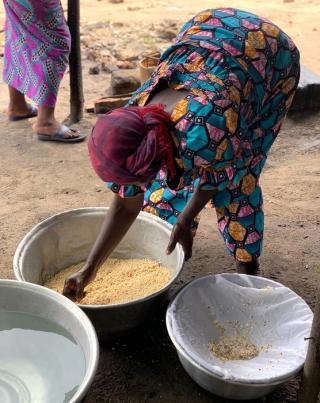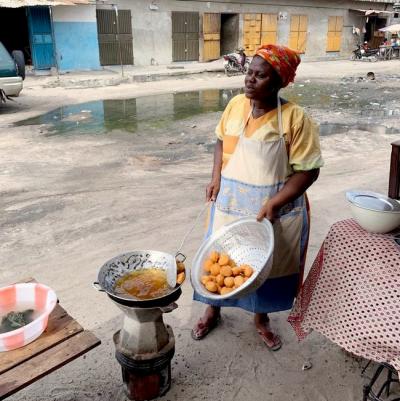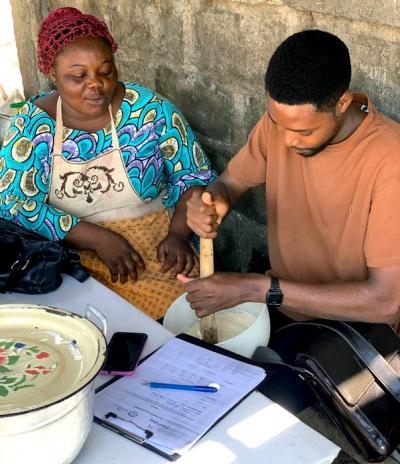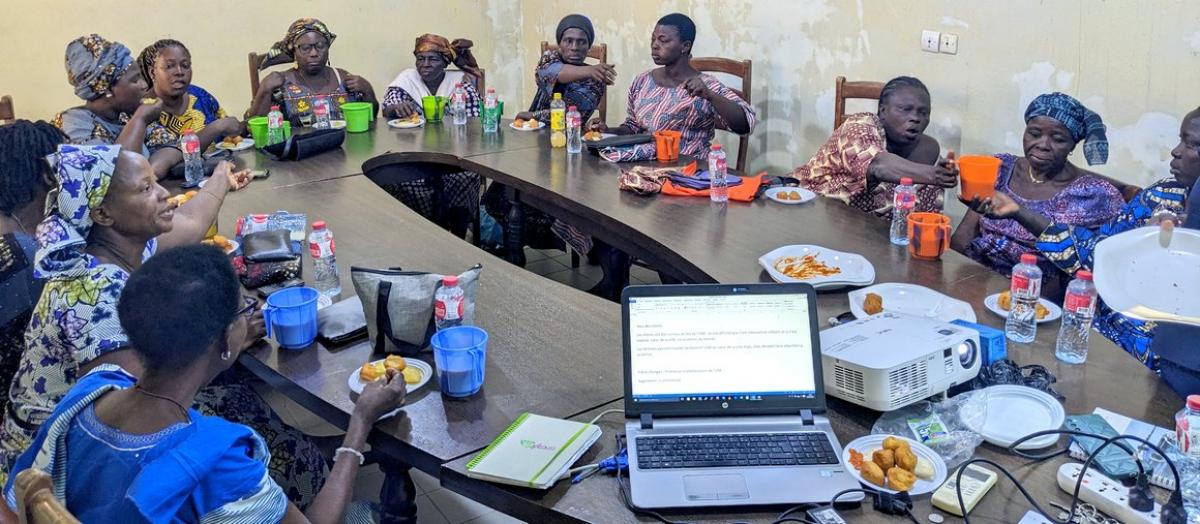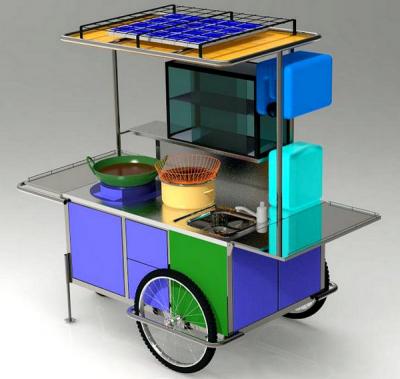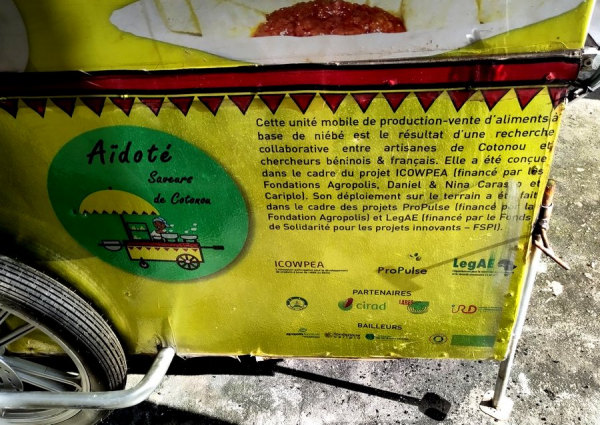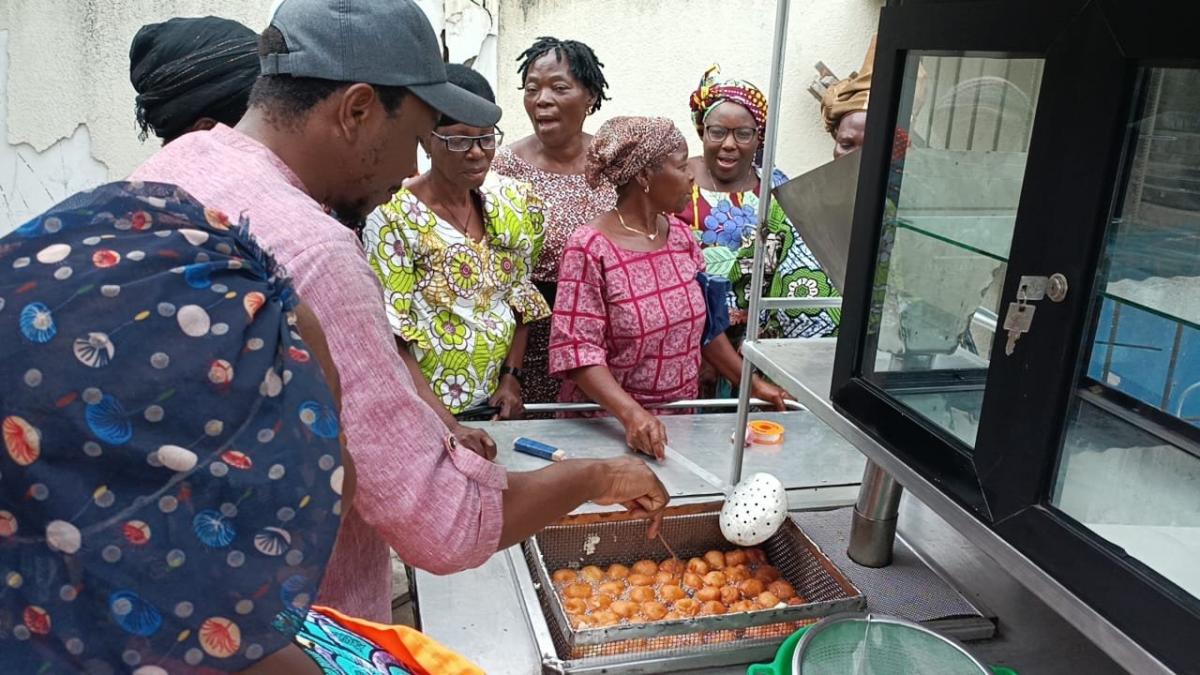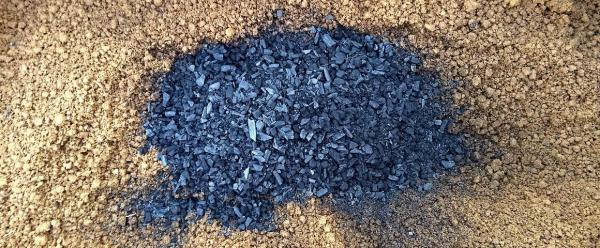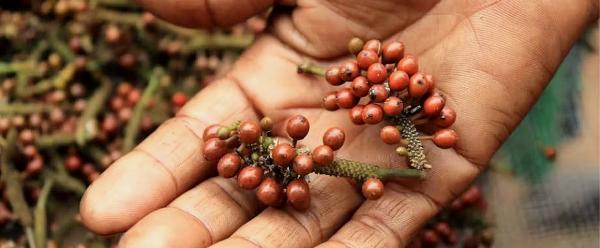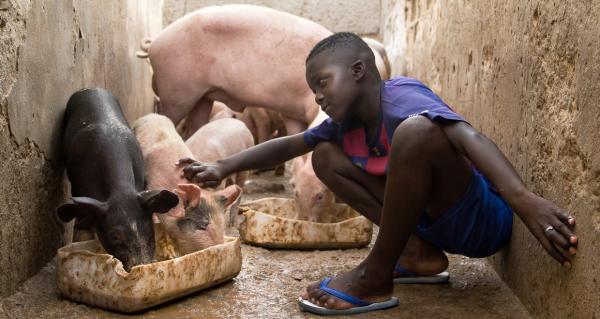Science at work 6 May 2024
- Home
- CIRAD news
- News
- Legumes, a food truck for food security
Legumes | A food truck to boost food security in West Africa
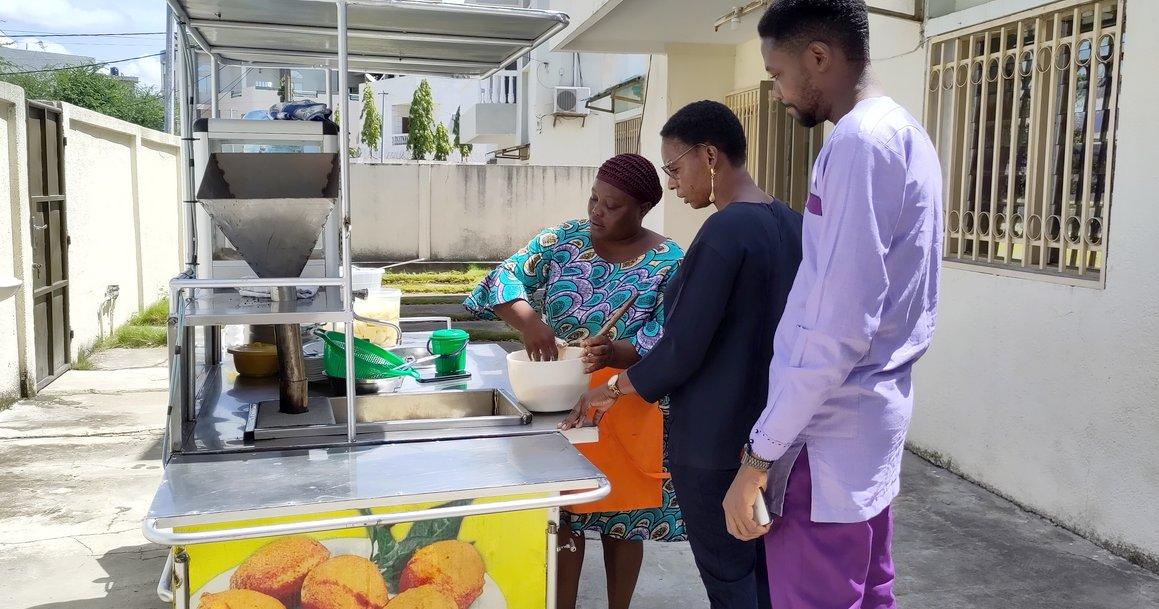
Women cowpea fritter makers in Cotonou, Benin, have high hopes for the cowpea truck © Y. Hemery, IRD
In West Africa, galloping urbanization has been accompanied by changes in food consumption methods. With this in mind, research teams have been working on research aimed at supporting and developing local legumes recognized to provide recommended nutrients (protein, fibre, vitamin B9, minerals, and so on).
Cowpea, an ally for food security
In Benin, for instance, cowpea is grown widely. Cowpea-based dishes such as abobo (stew) and ata (fritters), are emblematic and contribute to the country's food security.
Cowpea processing in Cotonou…
Nearly 60 tonnes of cowpea are processed every week in Cotonou. This small-scale activity provides some 4500 jobs, including almost 2700 women who process cowpea and cook and sell ata in the street. They can be seen almost all over the city, and feed consumers in Cotonou on a daily basis. However, their job is both hard and largely unrecognized by the municipal authorities.
… a hard, much-maligned and potentially dangerous job
The women soak cowpeas before hulling them by hand. The grains are then milled by neighbourhood millers. With the resulting flour, the women make a batter that is then fried. Ata are often eaten with other foods that are also fried but require less processing beforehand: yam, sweet potato, etc.
Every stage of cowpea fritter production is hard work. And frying is positively dangerous, in view of the heat and toxic fumes given off.
These many difficulties mean that the job is not very attractive to young people. This is exacerbated by the fact that it has little institutional recognition, notably on the part of the city council, which considers that these street sellers give the city a bad image.
For Florian Yvanez, a food processing engineer at CIRAD, "the cowpea truck is a real innovation for these women, who face difficulties with both processing and selling their products on a daily basis".
A food truck designed and built by three projects
The idea of a mobile cowpea processing and sales unit came from the ICOWPEA project. The aim was to tackle the challenges faced in the region and the situation at grassroots level.
The project's scientists carried out studies beforehand to identify and understand the existing processes (characterizing the female processors' network, consumption models, products and processing techniques). Two other projects, ProPulse and LegAE, are now building on their work.
"The women processors were really on board with the cowpea truck development process, as they could see how it would improve their working conditions and the image of what they do, and boost the interest of the local authorities", says Yann Eméric Madodé, associate professor with the food science laboratory at Abomey-Calavi University. "The women were keen to get a truck quickly and to see themselves and their job recognized, as real businesswomen."
Keeping the women in urban areas thanks to the cowpea truck is a novel way of keeping cowpea on the menu for young people and helping to safeguard Benin's cultural heritage.
Participatory engineering
A participatory innovation platform called "Aïdoté" was set up to design the food truck. It included women cowpea processors, whose network and inclusion in the platform were coordinated by the LARES (regional analysis and social assessment laboratory). It also included local SMEs and equipment manufacturers and the scientists from Benin and France involved in the project.
Once the first version was made, the women reported on its strong points, weaknesses and their expectations. During subsequent tests, they were able to assess the improvements and adaptations made.
"We used the feedback we received from the women to draft a formal design brief", CIRAD's Michel Rivier recalls. "The plans were then drawn at CIRAD, and after several meetings to validate various technical solutions, we sent the manufacturing documents on to the equipment manufacturer in Benin, Atingan."
The new version, which is much more compact, includes a high-performance stove that burns palm kernel charcoal, a renewable biofuel.
"Now that the unit has been adopted following our tests, the next step will be to test it under actual operating conditions. This will help us to pinpoint new potential improvements, to make the absolute most of this major economic activity" Florian Yvanez explains.
These units are currently being built, before being rolled out to local women. One of the units is specifically intended to make abobo.
The cowpea truck has a water supply with a sink, a product display case, and the high-performance stove. The heat from the stove can be adjusted using a small solar battery-powered fan: there is a solar panel on the top of the unit that also protects the user from the sun.
For Yann Eméric Madodé, "keeping these women in urban areas thanks to the cowpea truck is a novel way of keeping cowpea on the menu for young people and helping to safeguard Benin's cultural heritage".

























